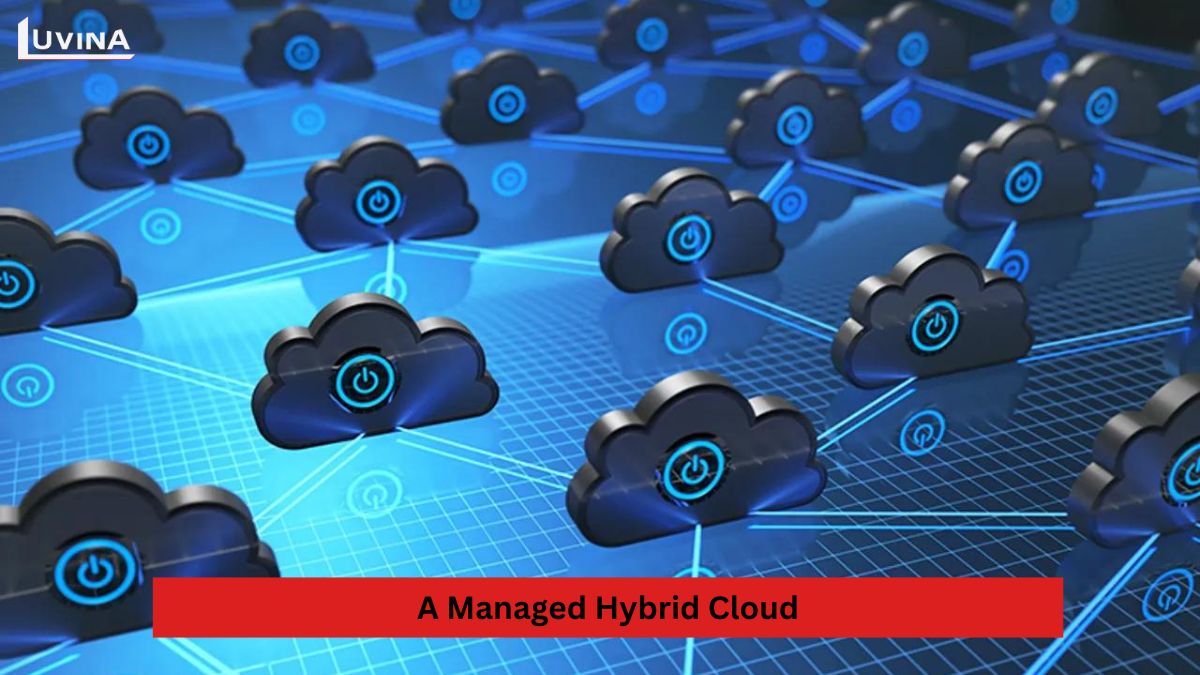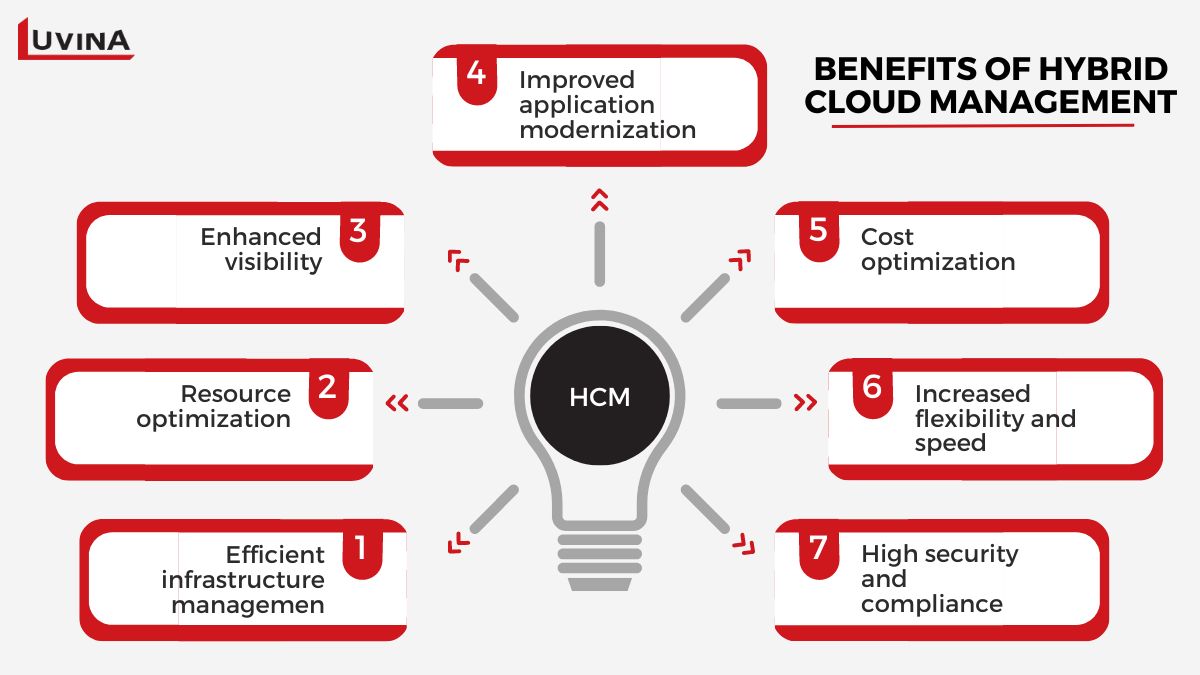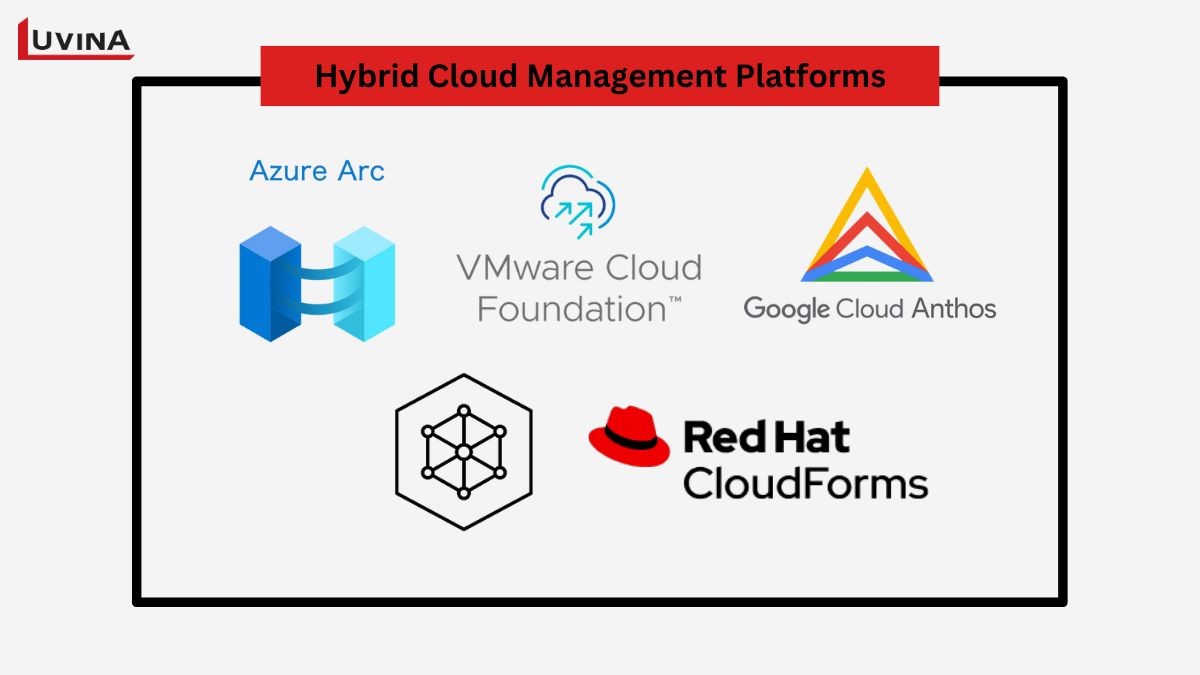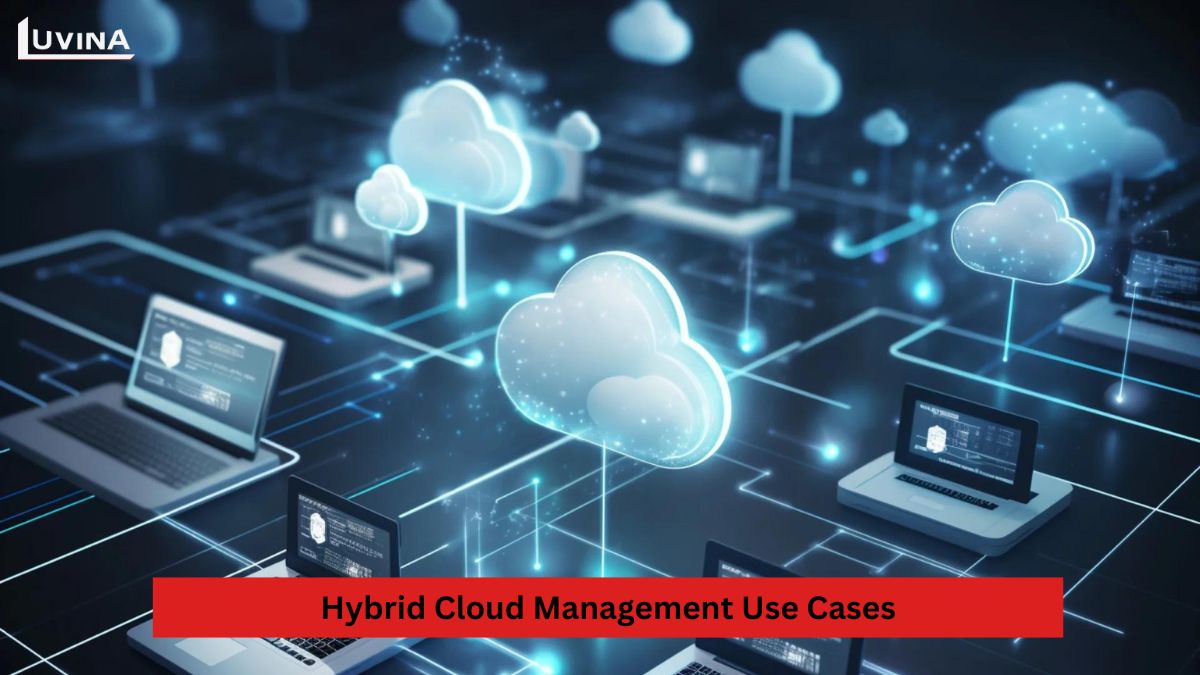Strategic hybrid cloud management can help businesses master this complex cloud approach. A hybrid cloud might be a perfect solution for keeping some data on-site while gradually transitioning to the cloud. Although it is an optimal solution, a hybrid cloud can be quite challenging to manage. To learn about the benefits of using a hybrid cloud and important tips for successful implementation and management, read the article below.
What is Hybrid Cloud Management?
Hybrid cloud is closely related to the concept of multi-cloud. It combines different cloud environments, usually private and public. With the help of a hybrid cloud management platform and automation software, the hybrid cloud can work seamlessly across on-premises and public cloud environments.

Hybrid cloud management involves combining public cloud resources with resources on private clouds in an on-premises data center. While these public cloud models perhaps run a little counter to the whole tradition behind a private enterprise data center, a hybrid cloud can preserve the functionality of older equipment while allowing companies to expand capacity via public cloud resources.
Benefits of Hybrid Cloud Management
With effective management of workloads running on different hardware resources across all environments, hybrid cloud management offers organizations the following benefits:

- Efficient infrastructure management: Streamlines the management of data, servers, and application security across various environments.
- Resource optimization: Expands or contracts resources based on business needs.
- Enhanced visibility: Automates monitoring and visibility to help businesses resolve issues faster and more automatically.
- Improved application modernization: Supports application modernization by improving software delivery performance through updates instead of replacing existing workloads.
- Cost optimization: Reduces labor, equipment, and capital costs compared to using only private cloud.
- Increased flexibility and speed: Allows businesses to be flexible in their cloud environment and provides scalability. When new cloud space is needed or expansion is desired, businesses can move to the public cloud for immediate solutions without the delays associated with the private cloud.
- High security and compliance: Utilizes the security features of the public cloud while adhering to national or international regulations by choosing where to store each type of data to maintain the highest level of security.
Top 5 Hybrid Cloud Management Platforms
A cloud management hybrid platform is an integrated software suite that automates workloads and streamlines administrative tasks across on-premises and cloud environments. The platform enables organizations to stay ahead in literally every aspect of their company-from what type of sales models to apply to effective budget spending in finding security issues. Below are the top 5 Hybrid Cloud Management Platforms:

1. VMware Cloud Foundation
This is one of the top hybrid cloud management solutions, combining industry-leading virtualization, storage, and computing products. The platform is designed for ease of deployment and management of both private and hybrid cloud environments. It also provides a complete suite of services for computing, storage, secure networking, and cloud management, allowing organizations to optimize IT infrastructure for efficiency, scalability, and security.
2. Microsoft Azure Arc
This comprehensive solution extends Azure services and management to any infrastructure, including multi-cloud and on-premises environments. By providing a single control plane, the platform enables businesses to manage complex IT environments seamlessly using consistent and robust approaches. Besides, Azure Arc supports hybrid and multi-cloud scenarios, allowing users to manage Kubernetes clusters, virtual machines, and databases from a central Azure interface.
3. Google Anthos
Developed by Google Cloud, Google Anthos is a modern application management platform that allows organizations to run applications without modification on existing on-premises hardware or public cloud environments. Google Anthos helps manage applications across various environments, including on-premises data centers, Google Cloud, and other public clouds. With high flexibility, it allows organizations to implement hybrid and multi-cloud strategies easily.
4. IBM Cloud Pak for Multi-cloud Management
This solution simplifies hybrid cloud management and multi-cloud management by offering a unified platform that integrates various management tools. It helps businesses streamline operations, optimize costs, and ensure compliance in different environments. In particular, by utilizing AI, the platform enhances operational efficiency by identifying potential risks, optimizing resource usage, and improving decision-making processes. It also integrates security and compliance features, providing a unified view of cloud resources.
5. Red Hat CloudForms
This hybrid cloud management platform allows centralized management of virtualization, public cloud, and private cloud resources. It provides automation solutions, security management, and compliance to help businesses easily control their entire IT environment. Red Hat CloudForms also offers self-service provisioning, monitoring, and policy-based compliance, making it a versatile tool for organizations looking to streamline their cloud operations.
When should use hybrid cloud management?
A hybrid cloud allows organizations to use flexible and scalable methods to leverage cloud resources. Hybrid cloud management can be used in various business scenarios as follows:

- Digital transformation: Enterprises are renewing their IT infrastructure through the leverage of public cloud services. However, the inability of traditional applications to handle changes in business and compliance requirements will force enterprises to keep an on-premises data center running. Hybrid cloud management provides a secure and agile migration path for organizations. It enables the incremental moving of organizations to public cloud environments based on workload demands. It thus enables moving in phases to the public cloud and sustaining the on-premises environment.
- Data storage compliance: For organizations that must comply with strict data storage regulations, hybrid cloud management is essential. It allows for the storage of sensitive data on local servers while leveraging the flexibility and scalability of public cloud services.
- Development and testing purposes: Hybrid cloud supports companies to develop and test applications in a local environment and then later deploy them in the public cloud. This management solution is essential for quickly adjusting computing capacity as the application grows in popularity.
- Business continuity and disaster recovery: Due to the hybrid cloud, which can duplicate information and applications between clouds, any kind of business interruption can be dealt with consequently reducing the chances of any failure. Good management enables organizations to carry out activities and quickly recover from any disaster.
- Cloud bursting: Hybrid cloud environments provide scalability for unstable workloads, which is useful during periods of sudden, seasonal demand spikes.
- AI and Machine Learning: Expanding on-premises AI models requires significant cost and expertise. Hybrid cloud configurations offer a solution by leveraging technological advancements and optimizing hardware costs.
- Edge computing: Integrating edge computing into a hybrid cloud environment helps perform data-intensive tasks closer to the source, reducing latency and enhancing data protection.
Hybrid Cloud Managed with Luvina
If flexibility is all that you look for in your data and workloads, then a hybrid cloud is what you would be looking at. Luvina is one of the top hybrid cloud-managed service providers, ready to support you on this journey.
Currently, Luvina is employing the rehosting method for cloud development services. Rehosting involves migrating applications, data, or IT assets to the cloud without altering the underlying code or architecture. This approach is particularly well-suited for hybrid cloud environments, offering a quick, cost-effective, and secure path to cloud migration. At Luvina, hybrid cloud migration and management can be done manually or using automated tools like AWS. AWS is one of the leading platforms for hybrid cloud management.
Why Choose Luvina as your hybrid cloud management provider?
- Stable and Excellent Service Quality: Luvina is a leading provider of ISO 9001-certified software services. With meticulous attention to detail and a team of 750 industry experts, Luvina ensures your systems operate smoothly and reliably.
- Access to Skilled Professionals: Luvina’s team of over 750 highly skilled developers is well-versed in advanced technologies and can adapt to your needs seamlessly.
- Enhanced Security: Luvina adheres to international security standards such as ISO 27001, ensuring that your data and intellectual property are securely protected throughout the partnership.
- Flexibility and Scalability: Luvina’s IT team can scale the project up or down according to your needs without any hassle.
Contact Luvina today to learn more about our hybrid cloud management services.









Read More From Us?
Sign up for our newsletter
Read More From Us?
Sign up for our newsletter